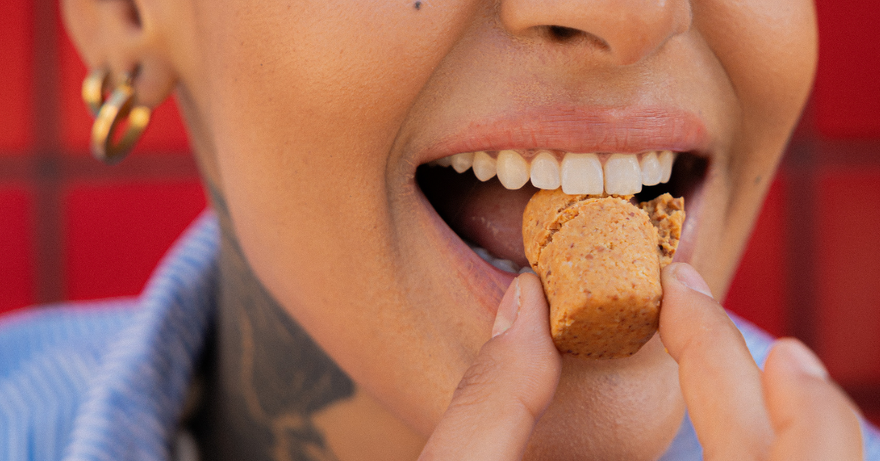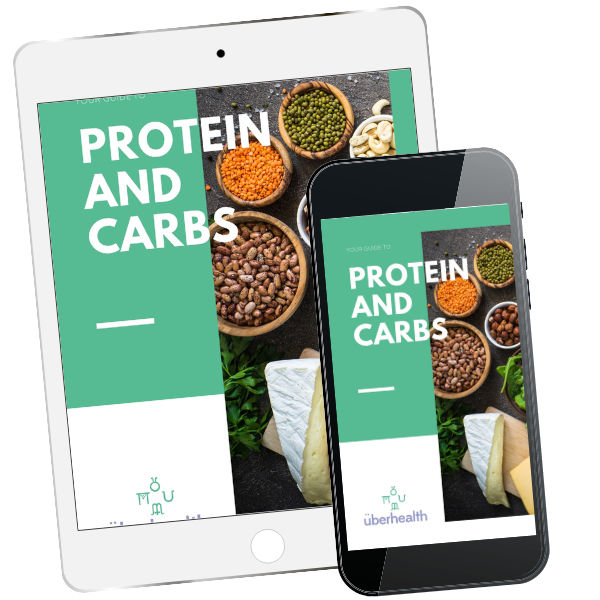Everything You Need to Know About Snacking

I have seen many a weightless plan be completely unhinged due to sneaky snack calories. On the flip side, I have also seen many training athletes lose strength and endurance from not having enough snacks.
Today I want to talk to the psychology of snacking, as well as the physiology. Hopefully with this insight you can determine whether you should be snacking or not.
So, why do we snack? Usually, your reason will fall into one of two camps; you have a physiological need that’s not being met, or you have a psychological need that’s not being met.
Snacking on the brain
The psychology drivers of snacking are usually the ones that can lead to overeating and weight gain. These are the times you’re reaching for a snack when you’re stressed, worried, bored, angry. You’re not usually hungry, but the food helps to distract or ground you. Psychological snacking is also about snacking out of habit (morning/afternoon tea), as a reward, or as a punctuation for the day. Usually, this sort of snacking is not reflected in the number of calories we are burning, thus can result in caloric excess in a day. If it’s a once off, then that’s okay. However, continued excess caloric intake can result in fat storage and weight gain.
What the body wants
Physiological snacking is different. Physiological snacking is whereby your body sends you cues to eat because it needs something. The first thing it usually needs is a big drink of water! Often when we think we are experiencing ‘hunger’ we have misinterpreted it for thirst. In clinic I usually recommend clients to drink a cup of water and waiting twenty minutes before snacking, to see if the ‘hunger’ passes. Sometimes it’s also the activity of getting up and getting a cup of water that breaks the monotony or routine and alleviates the psychology cause hunger, boredom.
Next up we have the physiological reason of your body signalling to snack because it needs something, either energy or a certain micronutrient. I see this often in my clients who do their training first thing in the morning, gobble down breakfast on the commute to work, and by the time 9am rolls around they’re looking for their next food fix. At this point I either question if they have eaten enough post training, and if they have, did they get the right macronutrient ratios in?
Needs versus wants
Here’s a quick little prompt to help you determine if you need a snack. Needs a snack:
- Are you training over 60mins per day, or two session in a day?
- Is your job physically demanding (labourer, nurse etc.)?
- Do you have a health condition which either speeds up your metabolism, or limits how much food you can eat per serve, thus requiring smaller more frequent meals?
- Are you a child or teenager who is growing?
In these cases, we may look at adding a snack or two into the day. But what to snack? Excellent question. The size and the volume of your snack will depend on a few things; is this a post training snack, or just a stop gap? Will you be training after this snack, and when is the next meal? If this is a post training snack, you need to get a great mix of protein and carbs.
If this is a pre training snack, then you can go a little bit lighter in both the total calories, as well as less protein. If you’re snacking because you’re hungry or you’re getting sugar crashes, then you need to look at what you’re eating, and how much, at your main meals. Are you eating enough protein to stabilize your blood sugar? Are you eating enough fibre to help keep you feeling full? Are you eating enough calories to replenish your glycogen stores post training, or to meet your basal metabolic needs? This article may help you with understanding carbohydrates for athletes and everyone else. Who doesn’t need a snack:
- If you’re job is mainly seated all day
- If you have a high step count, but not physically demanding work,
- If you don’t train for more than 60mins a day.
If you’re finding yourself wanting or needing to snack, and you fall into the above categories, let’s look at other things to try instead of snacking. Have a drink of water or herbal tea. Get up and go for a five-minute walk or stretch. Change the activity you’re doing. Have a quick conversation with a workmate.
Snack challenge
So, this month I want you to really think about your snacking habits. If you live in Sydney and are currently in lockdown – I hear you! Stress snacking and covid kilos are a real thing. But see if you can catch yourself? See if having a cup of water first helps? Are you thirsty? Do you need to move? Then see if you’re still hungry.
If you’re finding that you spend all day chasing your energy tail, and can’t seem to recover post training, then maybe you need to increase your snacks. I encourage you all to really listen to what your body is trying to tell you. If you’re finding you can’t shift those last kilos, or your energy is depleted and it’s affecting your training and events, it might be time to dive a bit deeper.
I am currently taking on more clients for 1:1 private consultation. Reach out here.
FREE RESOURCE


